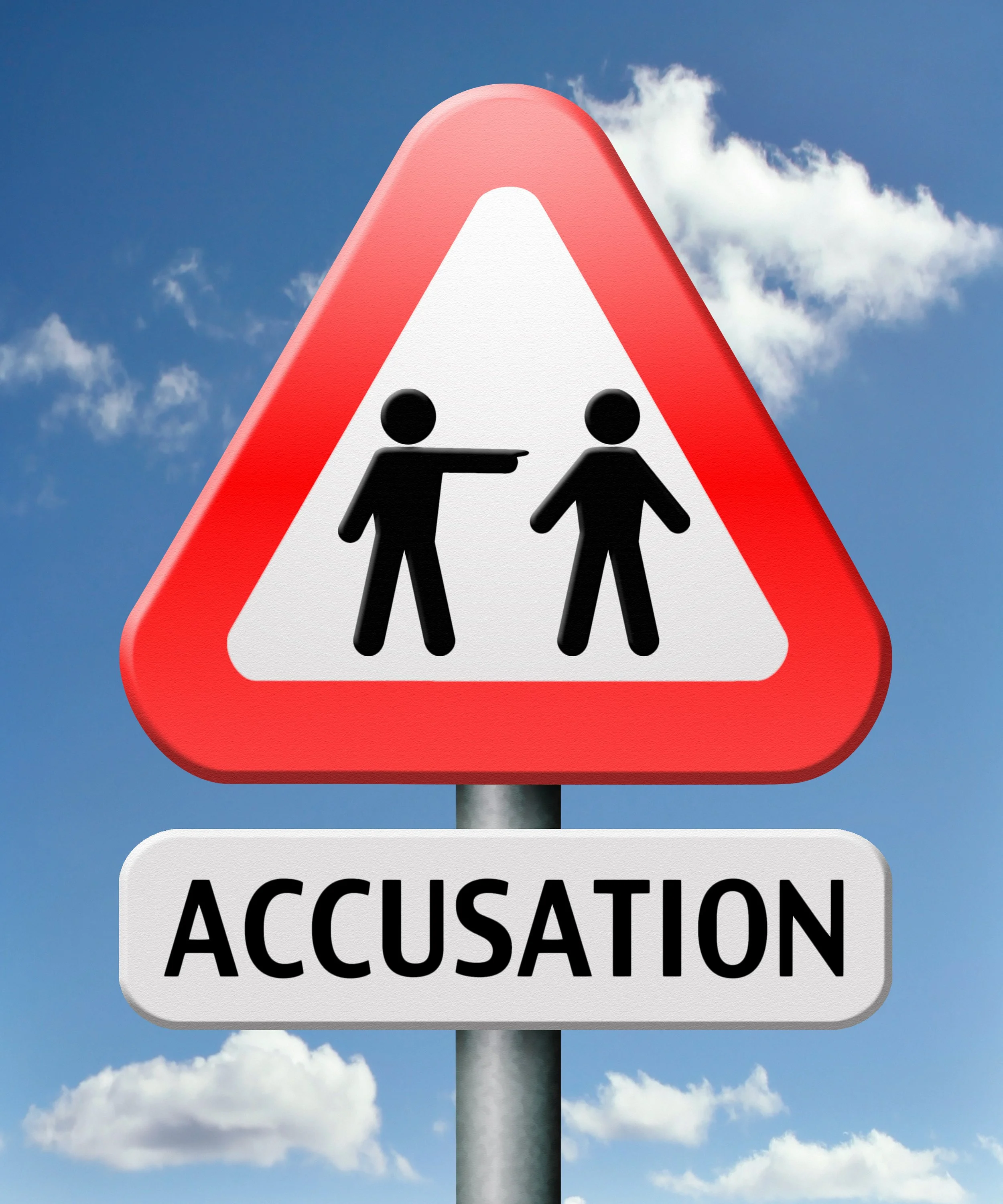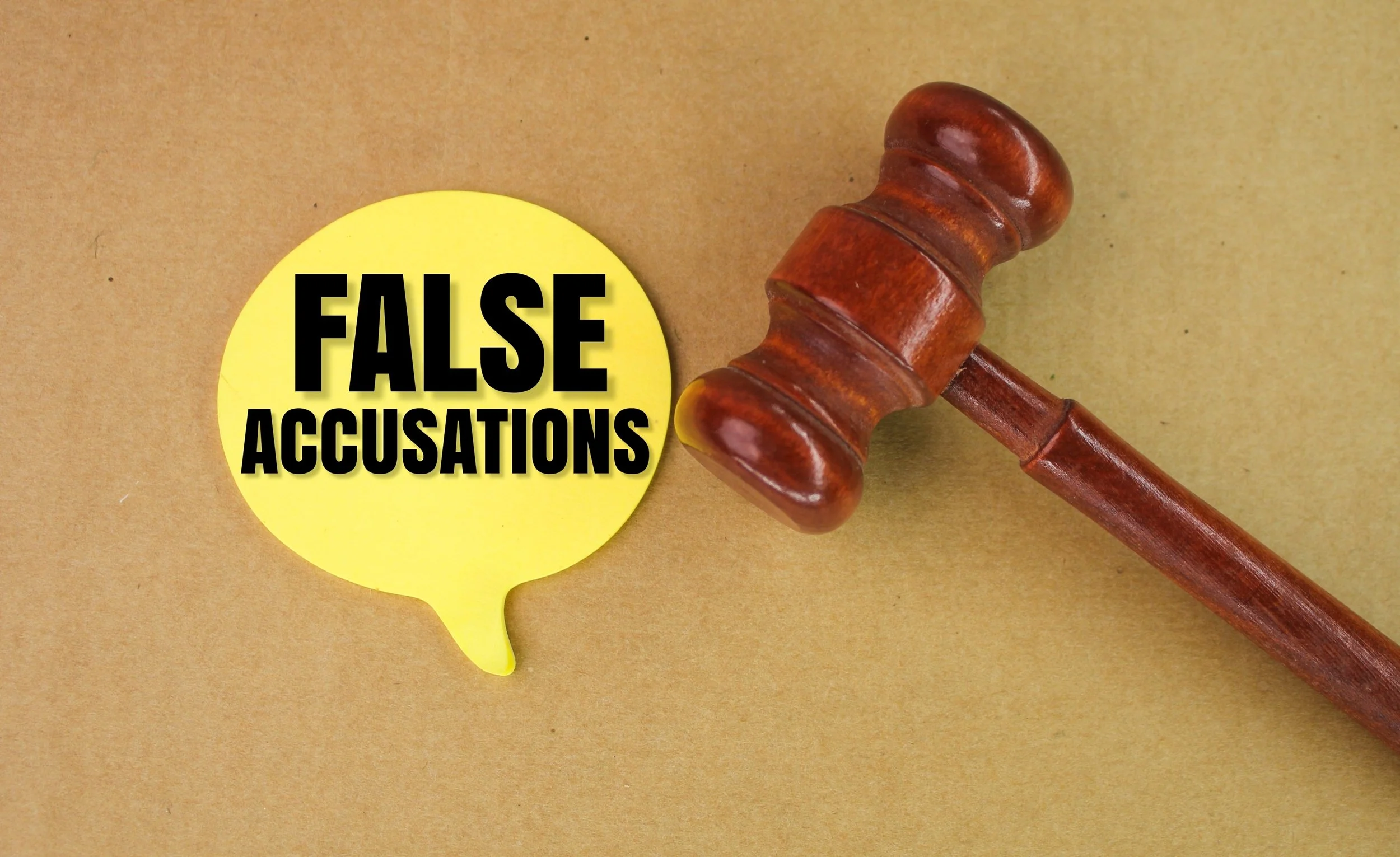Falsely accused? How to defend an allegation of a crime
Being accused of a crime that you didn’t commit is a stressful experience for anyone. You’d hope that the justice system would prevail and that the truth will come to light through the process. In some cases it does. But as we’ve seen with the Post Office Horizon scandal, sometimes false accusations end up in unfair criminal prosecutions.
To avoid that happening to you, it’s best to get a lawyer on board as soon as you can. In this blog, we look at what to do if you’ve been falsely accused of a crime.
Have a lawyer present at interviews
Some people worry that they will look guilty if they refuse to speak to the police without a lawyer present. That’s not the case. The prosecution can’t draw inferences from you requesting a lawyer. It’s your right, and you should use it.
The lawyer can protect you from any leading, and potentially incriminating questions. We can also advise you when a ‘no comment’ answer is best.
Remember that police officers are trained to elicit confessions out of suspects. Even if you’ve done nothing wrong, the process can fluster people into saying things they didn’t mean.
During the interview, your lawyer will glean crucial information about the line of investigation, and how to begin preparing your defence.
Do you have an alibi?
The first line of defence is to prepare your alibi, if you have one. Are the prosecution saying you were in a particular place, at a particular time to carry out the alleged crime?
If you can prove that you were somewhere else at that time on that date, then you have a viable alibi.
It’s worth writing down everything that you can remember about the day on which the prosecution say that the offence took place. What did you do that day? Who did you see? The earlier you can do this, the fresher your memory will be. Record everything that happened, in as much detail as possible, including exact timings if you know them.
Gather your evidence
The most persuasive defence is one that is backed up by firm evidence. Start gathering evidence as soon as you can.
Think about:
· Ring doorbells: Do you, or your neighbours, have Ring doorbells that evidence when you came in and out that day? Preserve the relevant footage.
· CCTV: Did you go into any shops or public spaces with CCTV? Request the video to prove where you were. Remember that some CCTV is wiped every seven days (or earlier), so try to do this as soon as you can.
· Witnesses: Who were you with at the time? Can they corroborate your story?
· Receipts: Any receipts from restaurants, shops, or other locations will evidence where you were at a particular time.
· Social media: Are there any photos or posts that align with your side of the story and cast doubt on the prosecutor’s line of attack?
· Phone records: Keep all of your WhatsApp messages, call logs, texts, and anything else on your phone. Every little detail will back up your alibi.
Gathering evidence is another reason to get lawyers on board at an early stage. We can help you collate compelling evidence, including making calls to the relevant places with CCTV.
In some circumstances, we will apply for third party disclosure for specific data and information which supports your defence.
Keep a journal
We mentioned that it’s a good idea to write down everything you remember about the day that the alleged offence took place.
It’s also wise to keep a journal of everything that happens in the lead up to trial that might be relevant.
In particular, if the person that has accused you of committing the crime tries to contact you at all, keep a note. Whether it’s emails, texts, phone calls, or anything else. It all adds to the picture. It might cast doubt on their story, or create a sense of their character.
Lawyers’ investigations
As lawyers, we will do a thorough investigation on your case. Remember, you don’t have to prove your innocence. You only need to show that there is reasonable doubt that you committed the crime you’re accused of.
It’s our job to find holes in the prosecutor’s story, cast doubt on their line of attack, and (if we can) suggest that the accused is prone to lying or is in some way not an upstanding character.
We find flaws and weaknesses in the prosecution’s cases, and we point out ulterior motives for the accused making these allegations.
We gather persuasive evidence and present it to the court and jury in a compelling way. In some cases, we instruct expert witnesses to give their opinion to support your defence.
Pursuing compensation
If you have been falsely accused of a crime, then you may be entitled to compensation.
The person falsely accusing you may be guilty of trying to pervert the course of justice. That’s punishable by a custodial sentence. Sometimes the Crown Prosecution Service (CPS) will bring that action themselves. If they don’t, and it’s possible to bring the claim yourself.
Get in touch
If you’ve been accused of a crime that you didn’t commit, please get in touch with us at Harewood Law as soon as possible (0333 344 8377). We are experts in this area and we can represent you in interviews, and prepare your defence.
At our first consultation, we’ll give you some idea of costs, including information about funding the case with Legal Aid.



